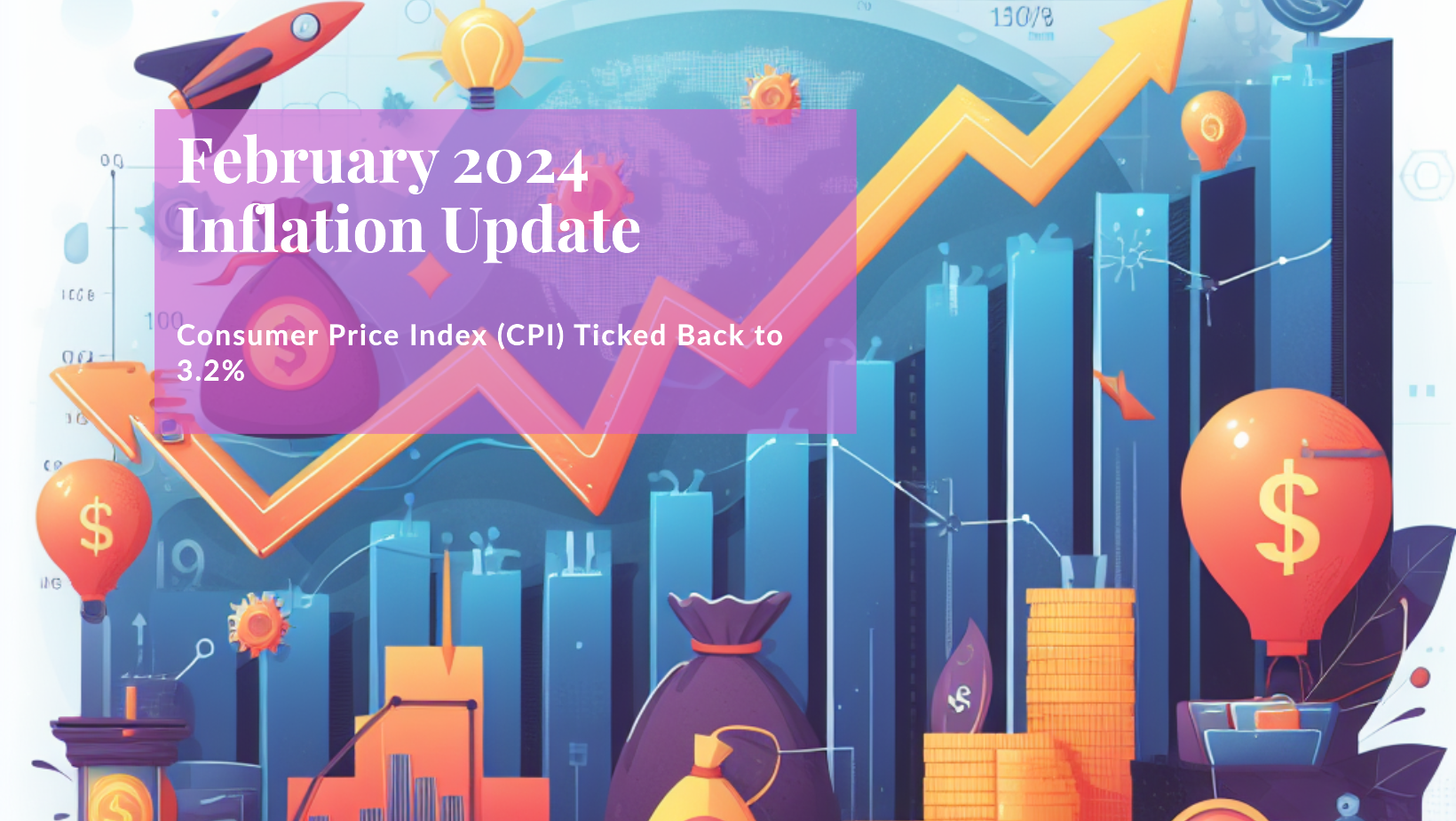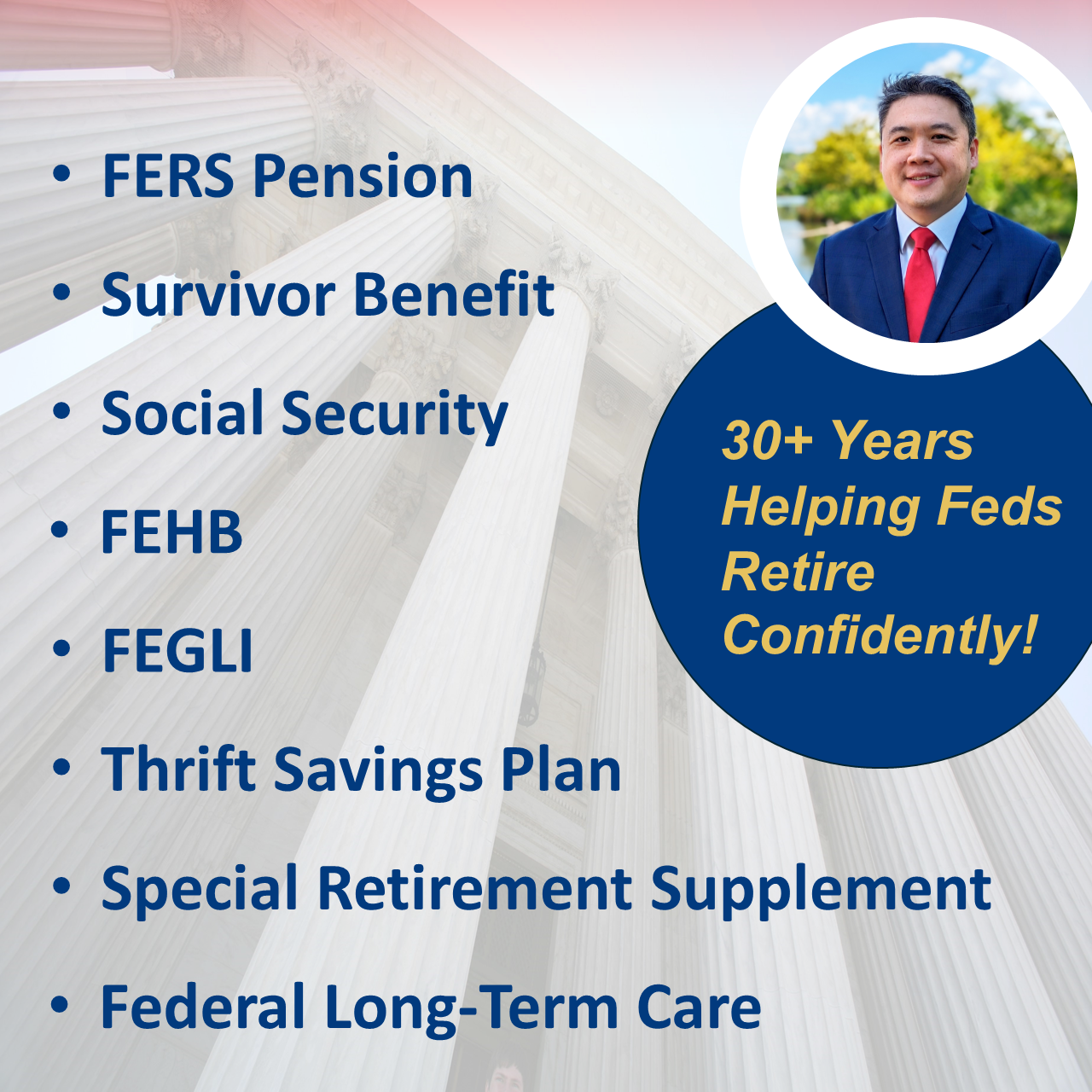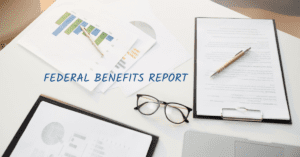February 2024 Inflation Update: Consumer Price Index (CPI) at 3.2%
The up and down of the Consumer Price Index is not over yet. In February 2024, it rose 0.4% compared to a month ago. The CPI is published by the Bureau of Labor Statistics and the Bureau of Economic Analysis. The Federal Reserve also uses this data to determine interest rate changes and policy.
Consumer Price Index (CPI) & Core Inflation Rate
The CPI data is a widely followed measure of inflation that tracks the average change in prices paid by urban consumers for a basket of household consumer goods and services. CPI rose to 3.4%, a much bigger jump than anticipated. The CPI, less food & energy costs, is at 3.8% year over year. We saw that food prices went up while energy ticked down.
Producer Price Index (PPI) – Inflation Measure for Manufactures
This vital measurement tracks the average price change domestic producers receive for their goods and services. It is a leading indicator of consumer inflation, reflecting price pressures that may eventually pass on to consumers. In February, the PPI jumped to 0.6%, much higher than anticipated. Cost of goods was the biggest driver, with a 1.2% increase, and the cost of services increased only by 0.3. While it indicates future price increases for the consumer, it is to be seen if the manufacturers and producers will pass the savings down to the consumer level.
Personal Consumption Expenditures (Core PCE)
The PCE price index, also known as consumer spending, is measured by the Bureau of Economic Analysis and the preferred measurement on inflation by the Federal Reserve Bank. It is another closely watched inflation gauge, excluding volatile food and energy prices. It is considered a preferred measure of inflation by the Federal Reserve as it provides a cleaner signal of underlying inflation trends. As of January, the Core PCE is down slightly to 2.8%.
Oil & Gasoline Prices
Gas prices also increased by 4.7% compared to January. The United States average price of all formulations rose 15 cents from $3.214 on January 29th to $3.365 on February 26. Brent oil prices rose, it went from $80.12 as of January 31, 2024, compared to $83.48 on February 28th.
What does this mean for Price Inflation?
The combined numbers may provide complementary insights into future inflation expectations. While the CPI reflects consumers’ headline inflation experience, the CPE excludes volatile components and offers a clearer picture of underlying inflation trends. Conversely, the PPI indicates price pressures that may eventually translate into higher consumer prices.
It is not over yet! As expected, no announcement of a March rate cut was made. However, Federal Reserve Chairman Jerome Powell has reiterated the three rate cuts in 2024. Prices rose unexpectedly, and it’s still unclear if it’s a new trend. The increase was caused by the service sector, and it is much tougher to see decreases in prices. The good news is on the job front. We also saw fewer new unemployment applications and a continued strong job market. The news of major job cuts is still contained mostly in the tech sector, with a result of 375,000 new jobs in February.
Reach Out to Us!
If you have additional federal benefit questions, reach out to our team of CERTIFIED FINANCIAL PLANNER™ (CFP®) and Chartered Federal Employee Benefits Consultants (ChFEBC℠). At PlanWell, we focus on retirement planning for federal employees. Learn more about our process designed for the career federal employee.
Preparing for a federal retirement? Check out our scheduled federal retirement workshops. Sign up for our no-cost federal retirement webinars here! Make sure to plan ahead and reserve your seat for our FERS webinar, held every three weeks. Want to have PlanWell host a federal retirement seminar for your agency? Reach out and we’ll collaborate with HR to arrange an on-site FERS seminar.
Want to fast track your federal retirement plan? Skip the FERS webinar and start a one-on-one conversation with a ChFEBC today. You can schedule a one-on-one meeting here.








